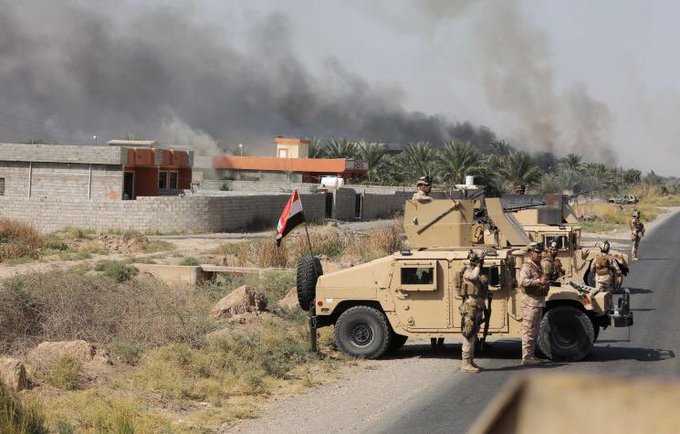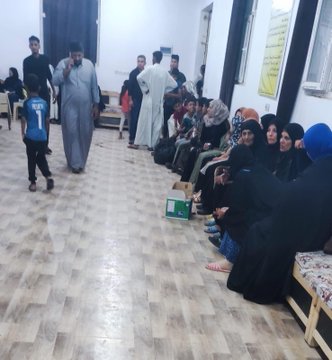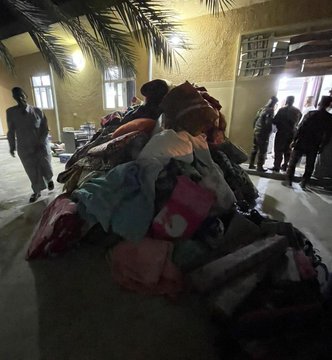Before the year winds down, I'm getting in at least one more book review. Community wide we've been using KINDLE UNLIMITED this year from AMAZON. It let's you borrow up to ten digital books at a time. You pay a monthly fee, around $10, and you can borrow various books. The selection rarely includes anything from the last two years.
This one is 'new' by that standard, 2019. It's HUNKY DORY (WHO KNEW?): THE BEST I CAN REMEMBER FROM TWENTY YEARS AT THE HEART OF THE '60S AND '70S ROCK AND POP by Laurence Myers.
Who?
He's a Brit who was born in 1936 and spent a few decades in the music business and now does film and theater. He's a businessman and his book is a reflection on . . . Well.. . . Something.
In this country, the c-word is still considered a tad too far -- though as the word was hurled at Hillary Clinton in 2007 and 2008 and 'progressives' like Matthew Rothschild found it funny to do so, it's lost some of it's forbidden nature.
In England, it's always been a popular word -- applied to men and women.
And Laurence exists to explain why that is.
Truly, there has never been a more passive-aggressive author.
And if that aspect doesn't interest you, you should skip the book.
There's not really much more to it.
He worked with David Bowie. I learned more in a one page write up in ROLLING STONE about Bowie then I do from this book. His website boasts a list to names -- famous people -- that he worked with. It includes Donna Summer.
I found that surprising because Donna's mentioned once and as a CASABLANCA recording artist -- one sentence -- which is really about Neil Bogart (the head of the label).
The book is the passive-aggressive ravings of a sexist homophobe.
Sexist? The only woman that appears in more than three sentences? Raquel Welch.
She pops up when he insults a male musician to someone at a party saying he doesn't want to meet him and would rather meet Raquel Welch. Turns out Raquel's at the party. His friend grabs him, takes him over to Raquel and Laurence gets a photo with her.
Wait. One woman does get a big more space. No, not Lulu. Despite her being on his label, he doesn't seem to know her. But he does write at length about when Marianne Faithful was briefly at his label and recorded what he thinks was an useable album and how she tried to hit him up for a bottle of booze and he really just dogs her despite the fact that I don't believe he ever interacted with her (he wasn't a producer or an engineer). Being the bitch that he is -- this being the US, I can't use the c-word here -- he makes sure to insult her and to allude to an old (and disproven) rumor about Marianne.
Lest you think he's just bitchy with Marianne, don't think that. He's bitchy to everyone.
For no reason at all, long after he's ceased to be the accountant for the Rolling Stones, he drops in a dig at Mick Jagger and his singing.
And no one is spared.
Clive Davis is a genius -- he tells you -- before, a page later, describing Davis in very different terms. Laurence is just a little bitch.
In his long, long life, I find it hard to believe he never borrowed money but Laurence doesn't acknowledge that. However, if you borrowed money from him, be forewarned, you may be mentioned in his book -- especially if you didn't pay it back.
Sometimes he's just bitchy because it comes as naturally to him as breathing.
Cher gets on his friend's nerves -- the friend is managing her and Joan Rivers -- and Cher is playing in Vegas and won't go on because she's gained four pounds -- according to Laurence who hasn't met Cher, hasn't spoken to her and isn't even in Vegas.
There's no point to including this claim -- it's one sentence (Joan and Cher both appear in two sentences in the whole book).
Maybe you were on his label in England and you wrote a hit song?
If so, please don't read the book. His opinion of you is that you wrote some nonsense, not a real song (like Rogers & Hart) and that's really all you're capable of.
He attacks someone he made a lot of money with because the person stops being his friend.
Why did the person stop being his friend?
Because bitchy Laurence was trashing him to a mutual friend.
He explains in the book that he shared that the man was putting too much money into gay businesses -- always prefacing it with "gay." At some point, someone may have pointed this out to Laurence -- maybe the publisher? -- so he feels the need to insist he's not homophobic. Right because if you think someone's doing bad business deals, you can't just say bad, you have to say "gay" in front of it, right?
He's a homophobe.
He's a sexist.
He's a passive-aggressive.
Closing with C.I.'s "Iraq snapshot:"
Friday, October 29, 2021. As the myth-based coverage of Moqtada continues from US 'press' outlets, we offer some reality.
Heaven help us, the world deserves better.
You can't follow what passes for commentary without thinking "The world deserves better." I'm reminded of this with the garbage FOREIGN POLICY has published -- is that redundant? FP just publishes garbage and has been since around the time of Susan Glasser's brief tenure at the head of the magazine. It's garbage.
So they want to weigh in on Iraq and they can't find anyone obviously. So they go with . . . Anchal Vohra. Scratching your head? A lot of us are. Those of us who know her work certainly are. But, reality, most people are scratching their heads over "Who?" They'd be right to.
But Anchal's problem for those of us who know her work is she doesn't cover Iraq. She's a paid journalist. In three years, she has filed two reports on Iraq -- don't count her b.s. "Syria and Iraq" that is never about Iraq, whether it's her or anyone else, they write about Syria and toss in a tidbit about Iraq. Anchal does the same with her "Lebanaon and Iraq" coverage. She's in Beirut and she largely covers Israel.
She's not an expert on Iraq and it shows. Over and over.
And I get it, most people have pulled their staff from Iraq. You need someone to write a column, what are you going to do?
Well, I don't know, maybe get an Iraqi journalist in Iraq to write it? How about that?
It beats bringing on Jane Arraf -- which MSNBC did recently and Ava and I were kind and avoided weighing in on that nonsense. Jane has no opinion worth sharing.
She's at THE NEW YORK TIMES now. But you may know her from THE CHRISTIAN SCIENCE MONITOR, NPR, ALJAZEERA or, most infamously CNN.
She's been in Iraq forever. Including under CNN.
If you're thinking, wait, wait, I don't know that name -- you're right.
Because she doesn't break news.
Never.
Ever.
She learned that at CNN.
As Eason Jordan revealed in April of 2003 ("The News We Kept To Ourselves," NEW YORK TIMES), CNN didn't report from Iraq. They covered what the Iraqi government (run by Saddam Hussein) wanted covered. They avoided anything embarrassing (such as reality) because it might get them kicked out of the country.
That's why you don't know Jane Arraf. She's 'covered' Iraq since the 90s. And she never saw anything.
Nothing.
Abu Ghraib? Nope. Innocent civilians being killed? No.
I should be fair. She did briefly see the deaths of civilians. Briefly. When she was new on Twitter. But those deaths never made it into her print or radio coverage. Even when she was an eye witness.
Because Jane was trained under "The News We Kept To Ourselves."
Someone who is now on her fourth decade covering Iraq and she's never had a scoop, never had a memorable piece of journalism.
That is, by the way, how she keeps getting hired. They hire her, all these outlets, knowing that she'll churn out boring copy that never informs so it never alienates. She takes up space and let's them check off 'covered' on their list.
Back to Anchal. At FOREIGN POLICY, she pens the non-thought piece (a musing? fan fiction?) entitled "Muqtada al-Sadr is the United States' best hope in Iraq."
Iraq is a land of orphans and widows. The war continues and will hit the 19th anniversary mark next March. The media age in Iraq is 21-years-old. By way of contrast, in the US, the median age is 38.1-years-old. Why the stark difference? Because the war killed over a million people. Because it turned the country into a land of orphans and widows.
And yet Anchal's writing about the Iraq election from the stand point of . . . the US?
Never accuse most journalists of having a sense of purpose -- the vast majority don't even provide context today.
FOREIGN POLICY pretends it informs readers -- but informing readers requires telling them what's happening, not shaping articles to suit policy -- that's called propaganda at worst and press releases at best. Thanks, Anchal, for making it clear that there is no informing from FP, just indoctrination.
Let's move over to Brooking to quote from a new piece by Ranj Alaaldin:
Muqtada
al-Sadr’s victory is an example of strategic acumen within a movement
that continues its transition from insurgency to government, propelled
by a yearning for respite and leadership, and by rampant destitution
within Iraqi society.
Almost 32% of Iraq’s population could soon be impoverished. But it is
precisely this despair that has resulted in the emergence of a protest
movement that considers Sadr and his militia to be part of the problem,
and complicit in the bloodshed that has engulfed the country, including
violence against protesters. In its electoral debut, the bloc
representing the protesters, Imtidad, secured 10 seats out of 329, a
remarkable feat for a movement that is subjected to systemic
assassinations and contested the elections amid unprecedented
voter apathy.
In that one paragraph, Rani presents more reality than Anchal does in her entire essay.
The clear choice in Iraq was Moqtada, Anchal lies. No, dear, with at least 52% of voters sitting out the election, the clear choice was something other than what is being offered.
As for the claim that Moqtada was a choice over the militias, what world do you live in?
Firsly, we've got the reality that the militias were disenfranchised since most could not vote (the bulk of the militia members were excluded from early voting on October 7th by a 'ruling' from the electoral commission and the bulk of the militias were deployed on October 10th to provide security -- October 10th being the election day). That claim keeps getting made and it's not accurate.
I loathe the militias and, had this been a fair election and the turnout the same, I'd be the first to trumpet this as reality. But it's not reality. And even to me, someone who loathes the militias, it's obvious that the militias were disenfranchised (and this may have been done on behalf of the US government, two US State Dept friends turn strangely coy on the topic while a third tells me I'm on the right track).
Secondly, Moqtada has his goon squad. He is not apart from the militias. He's a bit of an egomaniac who can't get along with others. What> You thought he was just Iraq's version of Richard Simmons in a large caftan?
Thirdly, huh?
Moqtada wasn't on the ballot. NOr is it his political party that won all the seats that they apparently did -- final results are still not in.
Are we forgetting that the same empty-minded press covered Moqtada not participating in the election?
It wasn't news. We noted here that a member of his political party e-mailed to correct that coverage. The members were still running whether Moqtada was boycotting the election or not. They had already filed their paperwork.
Moqtada wasn't a candidate. He's never been. When he said he was boycotting, that was not pulling his party or members of the alliance he's strung together. That was he wasn't going to vote and was calling on others not to. And then the US government used our tax dollars to buy him off in August and Moqtada came out in favor of the elections.
That's not the first time that Moqtada's received a gift from the US.
His supposed anti-American position is not as strong as it once was. It's hard to bite the hand that feeds you.
Anchal gushes -- did she mistake FOREIGN POLICY for TEEN BEAT? next up, "Moqtada Shares the 10 hottest things about men!" -- that only Moqtada can bring Iraq "the sort of change the country needs."
Strange, he's not at one with the protesters. No, he declared war on The October Revolution. After this movement started in the fall o 2019, Moqtada leapt onto the bandwagon once he saw how popular it was. But Moqtada is always about Moqtada. And the protesters -- Shi'ites, just like Moqtada is -- weren't going to take orders from any political elite. So, within four months, Moqtada was publicly attacking them (and his goons were attacking them with more than words). Then he saw the backlash and tried to hop back on board then hopped back off. And then? He got permanently shoved aside.
Why?
Motada attacked the girls and women participating. And he stated that they should not be allowed to protest with me.
See, Moqtada's all about the men. Moqtada's only happy when he's around men. Make of that what you will (and many do) or just le that closet door remain closed, it's your choice. (Or put Moronic Mars on the case of Knock Down That Closet Door, Mary.)
The October Revolution wasn't having it.
And they mocked him. They didn't just call him out. They mocked him. And Iraqi Shi'ites saw this and it just made the movement even more popular.
Moqtada can't make the changes necessary when he opposes them.
That's for starters. Second, he's not going to be prime minister.
He may -- or may not -- be a 'kingmaker' but that won't put him in the seat of power.
And the kingmaker . . .
I don't feel like redoing it, let's just grab two Saturdays ago and re-post:
---------
If you need to reach is 163, then 73 isn't really that close
Coming on two weeks after the election, Iraq still struggles and still has no prime minister or even a prime minister-designate. Yet we are all supposed to pretend. Which is how we get dreck like Thomas O'Falk (ALJAZEERA) report:
Muqtada al-Sadr remains one of Iraq’s most influential political figures and plays a pivotal role when it comes to the country’s future. He is currently considered the kingmaker, but it remains unclear if he can form a government with stability.
In the latest elections, al-Sadr’s party obtained 70 of a total of 329 parliamentary seats – a significant increase compared with the result of 2018, when his movement won 54 seats.
Despite this election result, al-Sadr did not run as a candidate for Iraq’s prime ministership.
The reason is relatively simple and founded in al-Sadr’s political strategy, Ruba Ali Al-Hassani, postdoctoral researcher at Lancaster University & Project SEPAD, told Al Jazeera.
Moqtada is a kingmaker?
He may become one. At present? He's not. He's part of a stalled system. And while Moqtada dithers and is unable to pull together an alliance, you better believe Nouri al-Maliki is working on putting together an alliance. Or did we all forget 2010?
Nouri's State of Law bloc came in second to Moqtada's bloc. Do we really think what happened in 2010 can't happen again? Or are we just ignorant of recent history? Or maybe we just discount Nouri's drive? If it's the latter, we're wrong to do so.
It's amazing how little attention is being given to Nouri. AL-MONITOR is one of the few outlets to emphasize the success Nouri had in this election:
At the US government funded Carnegie Endowment for Peace, Harith Hasan writes:
On the one hand, mainstream parties such as those of the Shia cleric Moqtada al-Sadr, former prime minister Nouri al-Maliki, the speaker of parliament Mohammed al-Halbousi, and the former president of the Kurdistan Region Massoud Barzani, appeared to be the main winners. On the other hand, there was more room for independents and newcomers to win a greater number of seats in the latest elections than during any of the previous elections, and they actually would have won more had the turnout been higher.
I believe that last sentence should be ''they actually MIGHT have won more had the turnout been higher." Or has Carnegie dumped analysis for psychic readings? Is this Carnegie Endowment or Carnac The Magnificent's Endowment For Peace?
More problems, Harith writes:
Election results have shown a considerable shift in the balance of power in favor of two competitors—Sadr and Maliki. If anything, Sadr’s gains—projected to be 72–75 seats—reflect his having an organized party. It is not that Sadr’s base has expanded significantly; the opposite may be true given that the total votes he received in this election appear to be less than what he received in the previous one. But the Sadrist movement has turned itself into an effective electoral machine, skillfully taking advantage of the new electoral system and fully using its voting power. The Sadrists were also helped by the low turnout, well-managed coordination between different levels of their organization, and the clarity of their political identity.
No, Moqtada does not have "an organized party." Only one political party got more than 30 seats and that was the KDP (Massoud Barzani is the leader of that political party which is based in the Kurdistan).
Hasan writes:
The other good performer among Shia voters was Maliki, who is projected to win 35–37 seats, after winning 25 in the last election. While there is a large gap between him and Sadr in terms of seats, the fact that he outperformed Fateh, an alliance of Iran-allied groups and paramilitaries that won 48 seats in the previous election, surprised many observers. Fateh is projected to win about 20 seats this time, and it appears that Maliki picked up most of those the alliance lost. Indeed, the power gained by Fateh and allied paramilitaries after 2014 was in part the outcome of the fragmentation of the coalition Maliki had formed when he was a prime minister.
Maliki’s fortunes have now been revived because he fielded strong candidates and appealed to Shia voters who associate him with a strong Shia-leaning state rather than one dominated by militias. The former prime minister also attracted votes from social categories that benefited from his government’s lavish spending on employment and patronage when oil prices were at their highest.
The first reaction to Sadr’s large win was the decision of the losers, led by Iran-allied groups, to rally around Maliki. But this time it is the former prime minister who is in the driver’s seat. Simultaneously, Fateh rejected the election results due to suspected voting irregularities, and allied armed groups threatened to intervene. The escalation in their rhetoric could quickly deteriorate into street clashes or armed conflict with Sadr’s supporters. More likely, this escalation, perhaps accompanied by limited confrontations, is intended to force Sadr to accept a power-sharing agreement with an alliance that includes his Shia rivals. Ultimately, among the main aims of Fateh-linked groups is to ensure the continuation of the Popular Mobilization Forces (PMF), an umbrella of paramilitary groups led by Iran-linked militias, the continuation, also, of the pro-Iran groups’ influence over key leadership positions within the PMF, and limited governmental oversight over the PMF.
Moqtada does not have enough seats by himself currently to be declared prime minister-designate. Some of what passes for 'reporting' in western outlets is not reporting and it is not factual.
As for Nouri's 'new' 'fortunes' and the surprise so many have over them? Nouri's a thug and we've long noted that here. Didn't stop us from noting last spring that his image was on the rise and that he would likely do very well in these elections. You're only surprised and see this as a new development if you're surprised and weren't paying attention. Mustafa has been a disaster for the Iraqi people. This, in turn, has made a lot more look fondly on Nouri than had previously.
That is not an endorsement from me for Nouri al-Maliki. A) I don't vote in Iraq. B) I don't care for Nouri al-Maliki.
However, noting that support was again building for Nouri was noting what was happening -- not what I wanted to happen, not what predicted would happen but what was actually happening.
It's a shame that so many outlets in the west are surprised by Nouri's victories. It's a shame because it underscores how useless and uninformed so much of their work in 2021 has been when it comes to Iraq.
This lavish praise for Moqtada -- like the earlier lavish praise for Mustafa -- is unwarranted and not at all factual.
73 seats?
Hmm.
That might mean something if you needed 74 seats in Parliament to be declared the prime minister-designate.
But, missing from all the hagiographic pieces the western media's filing on Moqtada, the reality is that you need 163 seats.
73 is a long way from 163.
And two weeks on yet Moqtada still appears to struggle forming deals, partnerships and alliances. They missed reality ahead of the election and now, after the election, the same outlets still struggle to comprehend reality. Moqtada may indeed end up pulling off the hat trick. However, at his present, not only has he not done so, he's shown no indication that he has the ability to do so.
---------
End of repost.
Get it?
73 is not 163 and Moqtada is having a very difficult time assembling support.
The militias -- the ones furious with Moqtada -- have met with Nouri al-Maliki.
I said he would ty to assemble a coalition and he is. That's what last weekend was all about for any who paid attention.
73 is a long way away from 163 -- especially when you're as polarizing as Moqtada has been.
He may end up a kingmaker. He may not. But the media keeps lying that he is already one and they're not paying attention to the other things going on.
The following sites updated:







